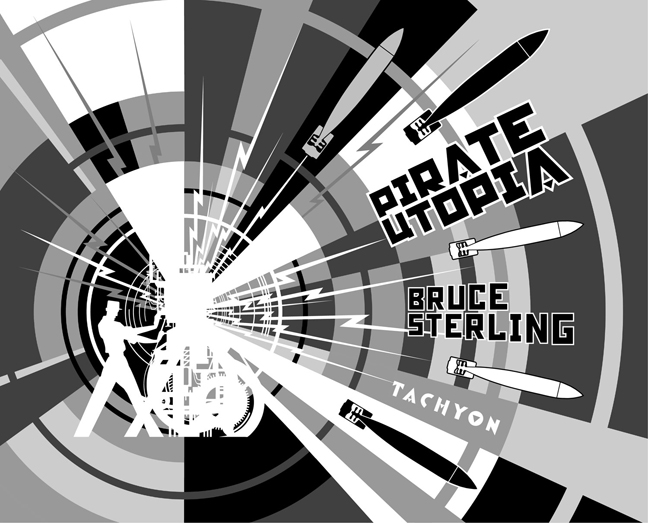

Not one of the texts I've read on the subject even mentioned the possibility of intentionality and resistance, much less the notion of "Pirate Utopia." Thousands of conversions to the faith of the Other mean nothing centuries of resistance to European-Christian hegemony mean nothing. They are seen as insignificant particles swept away from the mainstream of history by a freakish eddy or swirl of exotic irrationality. The pirates were uneducated, poor and marginalized-and hence (it is assumed) they could of had no real ideas or intentions. History has tended to view the Renegadoes' story as meaningless, as a mere glitch in the smooth and inevitable progress of European culture toward world domination. On the one hand, we have society on the other hand, resistance. Those who are irrational enough to believe in religion (or revolution) as a reason for action in the world are "dangerous fanatics." Clearly not much has changed since the 1600's. In our modern consensus view, the moral right of killing and stealing (war and taxes) belongs only to the state even more specifically, to the rational, secular, corporate State. We are not used to looking at history from a terrorist's point of view, that is from the point of view of moral struggle and revolutionary expropriation. Just as the European Consensus of the 17th century denounced such conspiracy as treason and apostasy, so our modern media dismiss it is as "terrorism". Apportionment of blame between pirates and the people who were creating the market by buying their produce (on both sides of the Mediterranean, one must point out) left as an exercise in historical futility. I don't buy this implication of idealism myself, however real the oppression, since it seems the main bread-and-butter of piracy was not more glamorous booty, but ordinary men, women, and children kidnapped and sold into slavery (or held for ransom), people as produce.

The author has way more enthusiasm for pirates than I do, somewhat anachronistically casting them as early resisters to European class structures, proto-democratic. The various quoted contemporary accounts were the best part. A brief account of early modern piracy in the Mediterranean and east Atlantic based out of the African/Islamic side, giving a good sense of how it worked through a discussion of the port city of Salé, which in the first half of the 1600s escaped, for a while, political domination from assorted surrounding, and taxing, Islamic state authorities, and hosted a kind of self-governing pirate guild. In their place comes a story about the magic, sea battles, purloined princesses, manhunts, make-believe kingdoms, fraudulent ambassadors, spies, jewel thieves, poisoners and devil worship that lie at the origins of modern freedom.Interesting little book, possibly best as a pointer to further reading than an end in itself if one's main focus is history as such. Pirate Enlightenment playfully dismantles the central myths of the Enlightenment. Its actors were Malagasy women, merchants and traders, philosopher kings and escaped slaves, exploring ideas that were ultimately to be put into practice by Western revolutionary regimes a century later. In this jewel of a book, he offers a way to ‘decolonize the Enlightenment’, demonstrating how this mixed community experimented with an alternative vision of human freedom, far from that being formulated in the salons and coffee houses of Europe. For Graeber, Madagascar’s lost pirate utopia represents some of the first stirrings of Enlightenment political thought. This was the Golden Age of Piracy, a period of violent buccaneering and rollicking legends – but it was also, argues anthropologist David Graeber, a brief window of radical democracy, as the pirate settlers attempted to apply the egalitarian principles of their ships to a new society on land. Its true origins lie thousands of miles away on the island of Madagascar, in the late seventeenth century, when it was home to several thousand pirates. The Enlightenment did not begin in Europe.


 0 kommentar(er)
0 kommentar(er)
